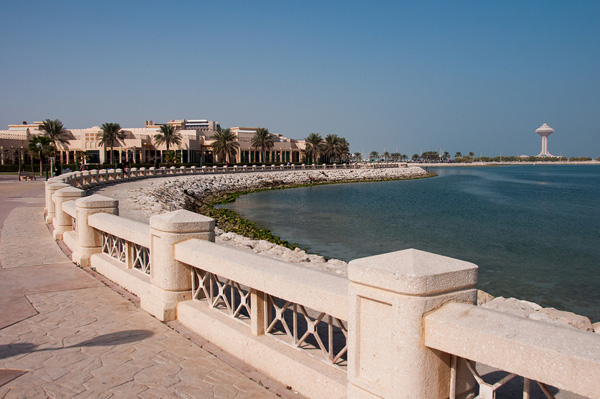Guide to Residency in Saudi Arabia
Summary: How to get residency in Saudi Arabia. A Guide for Expats, Retirees and Immigrants in Saudi Arabia.

Obtaining a residency visa in Saudi Arabia is not always easy, but our Guide to Residency in Saudi Arabia gives newcomers an overview of the steps involved and advice from others who have already navigated the process.
- Research the types of Saudi Arabian residency visas
- Visit the official Saudi Arabian government website or the Saudi embassies' websites to understand the different types of residency visas available.
- Choose the appropriate visa type based on your purpose of stay, such as work, family, investment, or student visa.
- Secure a job or sponsorship
- Find a job in Saudi Arabia which will provide you with a sponsorship, also known as a Kafeel.
- Alternatively, if you are moving for family reasons, ensure a family member can sponsor your residency.
- Obtain a visa invitation and apply for a visa
- Have your sponsor apply for a visa invitation through the Saudi Ministry of Foreign Affairs.
- Once the invitation is approved, apply for a visa at the nearest Saudi Arabian embassy or consulate.
- Submit the required documents, which typically include a passport, photos, application form, and the visa invitation.
- Undergo medical tests
- Complete the required medical examinations at an accredited clinic or hospital.
- Medical tests usually include blood tests and chest X-rays to screen for infectious diseases.
- Apply for an Iqama (Residence Permit)
- Once in Saudi Arabia, apply for an Iqama within 90 days of arrival.
- Provide your passport, visa, medical test results, and sponsor details to the Ministry of Interior's Jawazat (General Directorate of Passports).
- Pay the applicable fees for the Iqama issuance.
- Register for Absher
- Absher is an online platform for residents to access various government services.
- Create an account on the Absher website or through the mobile app.
- Verify your account through a registered Absher kiosk or through your bank.
- Apply for a Tax Number
- Visit the General Authority of Zakat and Tax (GAZT) website to understand the tax obligations and procedures.
- Register for a tax number through the GAZT portal.
- Provide the necessary documents, which may include your Iqama, passport, and proof of address.
- Open a bank account
- Choose a bank and visit a branch with your Iqama, passport, and proof of address.
- Complete the bank's application process to open an account.
- Renew your Iqama annually
- Keep track of your Iqama's expiration date and ensure you renew it on time.
- Pay the renewal fees and submit the required documents through the Absher platform or your sponsor.
- Comply with Saudi Arabian laws and regulations
- Familiarize yourself with local customs, traditions, and legal requirements.
- Respect the cultural norms, dress codes, and religious practices.
What tips do expats have about residency and visas in Saudi Arabia?
"In order to travel to Saudi Arabia, foreign nationals must apply for a visa and obtain authorization prior to arrival in the country. The process of applying for a visa includes submitting an application, including passport details and travel plans, to a Saudi Embassy or Consulate and providing documents that confirm the purpose of the visit, such as an invitation letter from a Saudi sponsor or an employment contract with a Saudi company. Foreign nationals who wish to reside in Saudi Arabia must obtain a residency permit, known as an Iqama. To apply for residency, applicants must first have a valid work or family visa and then submit all the necessary documents and fees at their local passport office. Applicants must also have a sponsor, who is usually the employer for work visa holders or a family member for family visa holders, who will be responsible for the visa holder's legal status in the country, as well as any necessary paperwork. After all the documents and fees have been submitted, the applicant will receive an Iqama card, which must be kept valid and renewed periodically," commented one member living in Saudi Arabia.
About the Author
 Joshua Wood, LPC joined Expat Exchange in 2000 and serves as one of its Co-Presidents. He is also one of the Founders of Digital Nomad Exchange. Prior to Expat Exchange, Joshua worked for NBC Cable (MSNBC and CNBC
Primetime). Joshua has a BA from Syracuse and a Master's in Clinical and Counseling Psychology from Fairleigh Dickinson University. Mr. Wood is also a licensed counselor and psychotherapist.
Joshua Wood, LPC joined Expat Exchange in 2000 and serves as one of its Co-Presidents. He is also one of the Founders of Digital Nomad Exchange. Prior to Expat Exchange, Joshua worked for NBC Cable (MSNBC and CNBC
Primetime). Joshua has a BA from Syracuse and a Master's in Clinical and Counseling Psychology from Fairleigh Dickinson University. Mr. Wood is also a licensed counselor and psychotherapist.
Some of Joshua's articles include Pros and Cons of Living in Portugal, 10 Best Places to Live in Ireland and Pros and Cons of Living in Uruguay. Connect with Joshua on LinkedIn.
Additional Information:
- Saudi Arabia Guide
- Healthcare & Health Insurance in Saudi Arabia
- Members Talk about Healthcare & Health Insurance in Saudi Arabia
- Best Places to Live in Saudi Arabia
- Real Estate in Saudi Arabia
- Guide to Real Estate in Saudi Arabia
- Pros & Cons of Living in Saudi Arabia
- Cost of Living in Saudi Arabia
- Insider's Guide to the Health System in Saudi Arabia
- Guide to Residency in Saudi Arabia
- Moving to Saudi Arabia
- Pros and Cons of Living in Saudi Arabia 2025
- 2025 Guide to Moving to Saudi Arabia




